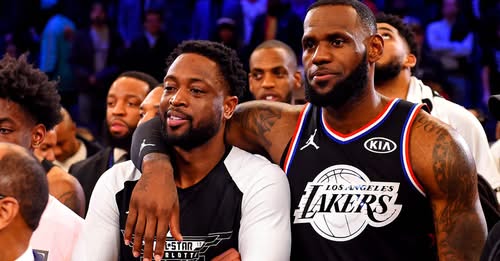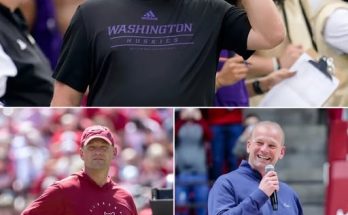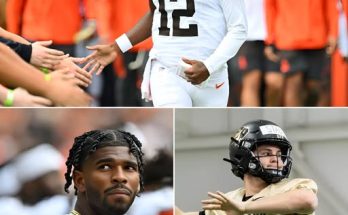Tony Grossi’s remarks about how the Cleveland Browns perceive rookie quarterback Dillon Gabriel offer more than just a casual insight—they peel back the curtain on how a franchise evaluates not just physical talent, but mental aptitude and leadership capacity. When Grossi stated that the Browns are “intrigued” by Gabriel and that “from the neck up, he’s a No. 1 pick,” he wasn’t merely tossing around praise. He was pointing to the cerebral, intangible aspects of quarterbacking that NFL teams desperately try to assess, especially with late-round or undrafted prospects who don’t check all the prototype boxes in size or arm strength.
The Cleveland Browns have been down the long, winding road of quarterback uncertainty for decades. From drafting first-round busts to throwing darts with journeymen, they’ve tried everything to stabilize the most critical position in football. Their recent shift under GM Andrew Berry and head coach Kevin Stefanski has leaned toward building a more holistic and sustainable culture—one that doesn’t hinge solely on short-term fixes but invests in long-term developmental prospects. So when Grossi highlights that the Browns are fascinated with Dillon Gabriel’s mental makeup, it’s not lip service. It speaks to a broader organizational strategy of betting on smart, high-character players with the capacity to grow into leadership roles, even if they don’t start as franchise saviors.
Gabriel’s journey to the NFL has already defied expectations. A standout at both UCF and Oklahoma, he was never seen as a surefire first-rounder due to concerns about his height, arm strength, and overall physical tools. But what he lacked in stature, he made up for in football IQ, grit, and decision-making. At Oklahoma, he managed an offense that demanded timing, precision, and an ability to read defensive shifts on the fly. Coaches raved about his preparation habits and leadership in the locker room. He wasn’t just another arm slinging passes—he was a student of the game, someone who took pride in understanding the intricacies of opposing defenses and motivating his teammates. This intellectual prowess and leadership energy, what Grossi refers to as the “neck up,” is the very essence of what separates career backups from unexpected starters.
From the Browns’ standpoint, Gabriel’s cerebral qualities allow them flexibility. They don’t need him to be the Day 1 starter or even the backup immediately. But having a player who can absorb the playbook, serve as an extension of the coaching staff on the field, and step in without being overwhelmed is an incredibly valuable asset in today’s NFL. Backup quarterbacks with elite mental capacity often extend their careers well beyond that of more physically gifted peers. Think of players like Chase Daniel, Colt McCoy, and Ryan Fitzpatrick—each carved out lengthy, respected NFL tenures thanks in large part to how they processed the game. Gabriel could very well be in that mold, but if his development curve exceeds expectations, the Browns may have stumbled into something even better: a low-risk, high-reward quarterback find.
The phrase “from the neck up” is often thrown around in NFL circles, but it holds deeper weight when coming from a seasoned journalist like Tony Grossi, especially within the context of a team like the Browns, who have placed increasing emphasis on organizational fit. Gabriel’s intelligence isn’t just theoretical—it’s functional. He has shown an ability to learn multiple systems, adapt to different coaching styles, and maintain consistency in high-pressure situations. The Browns know the value of that, particularly as Deshaun Watson continues to wrestle with the weight of expectation and lingering inconsistency. Having a young quarterback in the building who isn’t a distraction, who soaks up information like a sponge, and who can be molded over time, is a luxury few franchises can afford. The Browns are smart to take the slow-play approach with Gabriel, using his mental attributes as the foundation for long-term development.
Moreover, the intrigue with Gabriel isn’t just about intelligence in the classroom or playbook sessions. It’s also about leadership and intangibles. He has a reputation for winning over locker rooms quickly. He’s the kind of player who shows up early, stays late, and commands respect through example. That kind of presence in the quarterback room can have ripple effects. Even if he’s not pushing to be the starter, he sets a tone—he makes the room smarter, more focused, and more prepared. When you have a backup who thinks like a starter and who challenges others mentally, it raises the standard across the board. That’s where Gabriel’s impact could be most felt in the short term.
But don’t confuse intrigue for contentment with a limited role. The Browns’ internal view, as shared by Grossi, suggests that while they’re grounded in realism about Gabriel’s current place on the depth chart, they’re not capping his ceiling. Saying a player is a No. 1 pick from the neck up isn’t just praise—it’s an endorsement of untapped potential. It’s saying that if the physical skills can catch up—or at least be refined to a functional NFL level—then there’s no reason this player can’t compete for something more than clipboard duties. In that sense, Gabriel is less of a placeholder and more of a project with genuine upside. It’s a subtle but critical distinction, one that could alter the Browns’ long-term quarterback plans depending on how Gabriel develops.
In today’s NFL, where quarterback injuries and unpredictability are part of the weekly drama, having someone like Gabriel waiting in the wings is more than just good roster management—it’s essential. The league is littered with examples of late-round or undrafted quarterbacks who got their shot due to unforeseen circumstances. Some capitalized and became franchise names. Others served admirably and helped their teams survive critical stretches. Gabriel’s mental readiness puts him in position to do just that. He doesn’t need to be perfect physically. He needs to be sharp, prepared, and ready to maximize every rep in practice, every opportunity in the film room, and every preseason snap. The Browns will be watching closely.
It’s also worth considering that the intrigue surrounding Gabriel might eventually create strategic options for Cleveland. If he flashes in preseason or shows substantial growth in practice over the course of the year, he could become a valuable trade asset or even threaten the backup hierarchy behind Watson. NFL teams are always looking for young, cheap, coachable quarterbacks, especially those with upside. Gabriel’s intelligence and reputation could make him a candidate that others inquire about. And if the Browns like what they see, they might think twice about letting him go.
Additionally, there’s an understated but vital part of Grossi’s comment: it suggests the Browns are not just thinking about now. They’re planning. They’re evaluating every player not just for 2025, but for 2026 and beyond. They know the volatility of the quarterback position. Watson’s massive contract and controversial baggage make his future complicated. Having a young, inexpensive option waiting in the wings, learning and growing, is just smart football business. Gabriel might not be their next franchise quarterback—but he could very well be their next important one. The kind of player who steps in midseason and doesn’t just hold the line but elevates it. That kind of preparation and adaptability starts with what’s between the ears.
For a team like the Browns, who have finally stabilized their roster with talent across the board, having a mentally sharp quarterback who doesn’t need his hand held is a breath of fresh air. It creates a structure where coaches can focus on game plans, not on hand-holding. It gives confidence to veteran receivers and linemen who know their backup won’t derail a drive with mental mistakes. And perhaps most importantly, it reinforces a culture of accountability, where even the rookies are expected to master the mental side of the game.
Tony Grossi’s insight isn’t just an offhand observation—it’s a window into a quarterback prospect who may not dazzle you with highlight throws but earns trust through preparation, poise, and leadership. If Dillon Gabriel continues on this trajectory, the Browns may have found more than a camp arm. They may have found a player who rewrites his scouting report with every meeting, every snap, and every interaction. Because when a team believes you’re a No. 1 pick from the neck up, it means they see the rarest kind of potential—the kind that can outthink, outprepare, and outlead the competition, even if the arm doesn’t scream superstar. And in this league, sometimes that’s exactly what you need.



